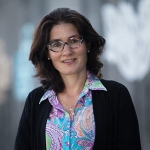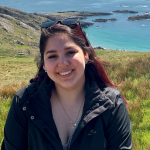Date & time
11:15 a.m. – 12:15 p.m.
Dr. Natasha Blanchet-Cohen, Alicia Ibarra-Lemay
This event is free.
Vanier Extension
7141 Sherbrooke W.
Room 317
Yes - See details
 Pathways Indigenous youth engagement and Community Care
Pathways Indigenous youth engagement and Community Care
This presentation reflects on the creation of a postcard on Pathways Indigenous youth engagement and Community Care done with the Indigenous youth advisory of the Quebec Youth Research Network: Indigenous Stream. We converse on the significance of what was shared, and the images selected. These convey how Indigenous youth are inspired and motivated to take their place and connect in a meaningful way, to speak their language, to (re)learn their culture, to discover and use their strengths… in essence, to flourish and grow. Central to meaningful involvement, healing, and well-being is community care. In sharing, we discuss some of the implications for Indigenous youth, research, and practice.
The Brown Bag Lunch Research Series 2023-2024 is offered by the Department of Applied Human Sciences.
These sessions are opportunities for faculty researchers to discuss an issue, topic or area on which they are working. At each session there will be plenty of time for questions and discussion.
All are welcome! Bring your own lunch. Refreshments will be provided.
Sponsored by: Centre for Human Relations and Community Studies.

Dr. Natasha Blanchet-Cohen is an Associate Professor in the Department of Applied Human Sciences. Her research centers on community youth development with a focus on rights-based approaches to programs and services, culture, and eco-citizenship, particularly as it relates to immigrant and indigenous young people. She is interested in the opportunities and limitations for immigrant and indigenous young people in being change agents in their schools, homes, and communities, as well as the perspectives of youth in providing for rights-based and culturally-responsive services and programs. She is also interested in developmental evaluation as a way of creating space to engage young people and communities to assess their own realities and use this knowledge to inform future action. Dr. Blanchet-Cohen has a well-rounded record of publications, and has been an invited speaker nationally and internationally in the area of youth participation and citizenship, culturally-responsive ecocitizenship, developmental evaluation, and children’s rights. As an interdisciplinary and engaged scholar, her participation in national and international initiatives have contributed to building the capacity of human ecologies - including federal, provincial, and municipal polices and services, and school, family and peer groups – to positively support the quality of young peoples’ lives.

Alicia Ibarra-Lemay is Kanien’kehá:ka from the community of Kahnawà:ke. She started her educational career in the field of Special Care Counselling, working with children with developmental disabilities, adults in a mental health facility and then mother’s and their children in a women’s shelter. Her passion has always been to work with people and help in any way that she could. She got to experience this working at Native Montreal in the Indigenous language program, education program and child program where she got to work and meet various people searching to reconnect with themselves and their Indigenous ancestry. Which led her to pursue further studies at Concordia University in the programs of First Peoples Studies and Child Studies in the hopes to better help Indigenous people.
© Concordia University